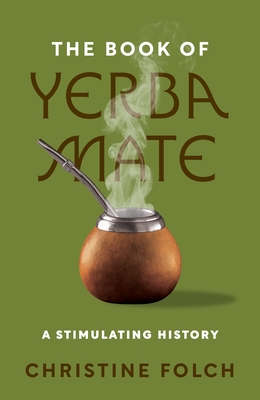

 Princeton University Press
Princeton University Press
The Book of Yerba Mate: A Stimulating History


Key Metrics
- Christine Folch
- Princeton University Press
- Hardcover
- 9780691246390
- -
- -
- Social Science > Anthropology - Cultural & Social
- English
 Secure Transaction
Secure TransactionBook Description
The untold story of South America's most interesting beverage
Brewed from the dried leaves and tender shoots of an evergreen tree native to South America, yerba mate gives its drinkers the jolt of liquid effervescence many of us get from coffee or tea. In Argentina, southern gaúcho Brazil, Paraguay, and Uruguay, mate is the stimulating brew of choice, famously quaffed by the Argentine national football team en route to its 2022 FIFA World Cup victory. In The Book of Yerba Mate, Christine Folch offers a wide-ranging exploration of the world's third-most popular naturally stimulating beverage. Folch discusses who drinks mate, and why, and whether this earthier caffeinated drink with its promise of a different buzz and a more authentic, spiritual connection to place can find a market niche beyond South America.
Folch traces yerba mate's odysseys across the globe, from South America to the Middle East and North America. She discovers that mate inspired the world's first written tango, powered early Jesuit and German nationalist utopias, ignited one of modern history's most devastating wars, and fueled Catholic conspiracies. And, Folch reports, mate is currently starring in puppet shows put on by Syrian dissidents.
By tracing yerba mate production and consumption as they change over time and place, from precolonial Indigenous beginnings to the present, Folch unravels the processes of commodification and their countervailing forces to show how accidents of botany intersect with political economic systems and personal taste. The stories behind the caffeinated infusions we prefer, she finds, are nothing less than the story of how the modern world is put together.
Author Bio
I work on water and energy politics amidst the constraints of the Anthropocene.
My first book Hydropolitics: The Itaipu Dam, Sovereignty, and the Engineering of Modern South America (Princeton University Press, 2019) is an in-depth look at the people and institutions connected with the Itaipu Dam, the world’s biggest producer of renewable energy. In it, I argue that the dam converts water into electricity and money to produce hydropolitics through its physical infrastructure, the financial liquidity of energy monies, and the international legal agreements managing transboundary water resources between Brazil and Paraguay, and their neighbors Argentina, Bolivia, and Uruguay.
My larger research agenda is on environmental ethics and how groups conceptualize and politicize their relationships to nature. As a cultural anthropologist, I am particularly interested in how energy and environmental impacts disproportionately negatively affect marginalized communities.
I'm an Assistant Professor in the Department of Cultural Anthropology and Environmental Science and Policy (Nicholas School of the Environment) at Duke University.
Source: Duke University
Videos
No Videos
Community reviews
Write a ReviewNo Community reviews